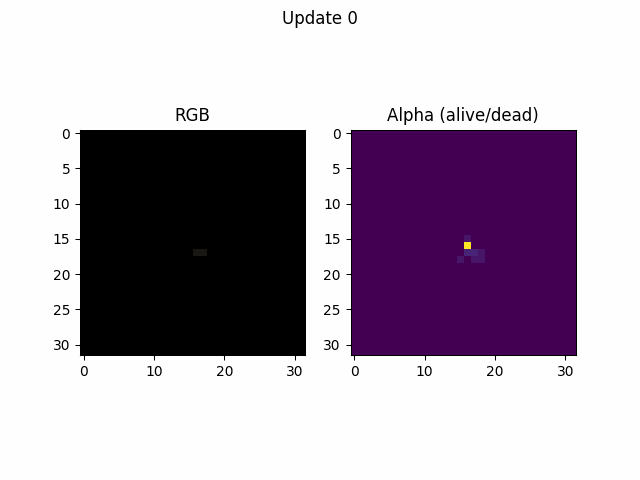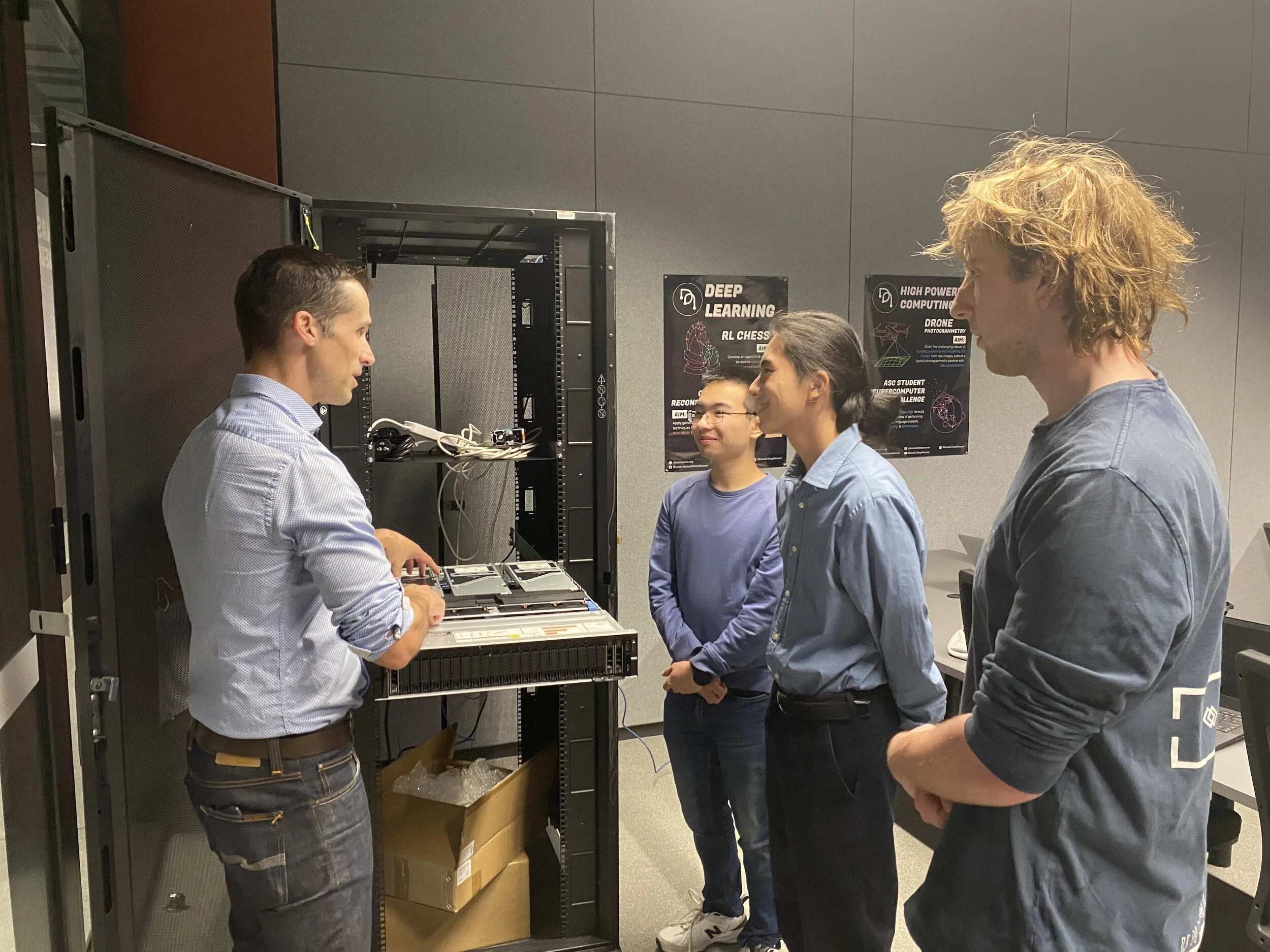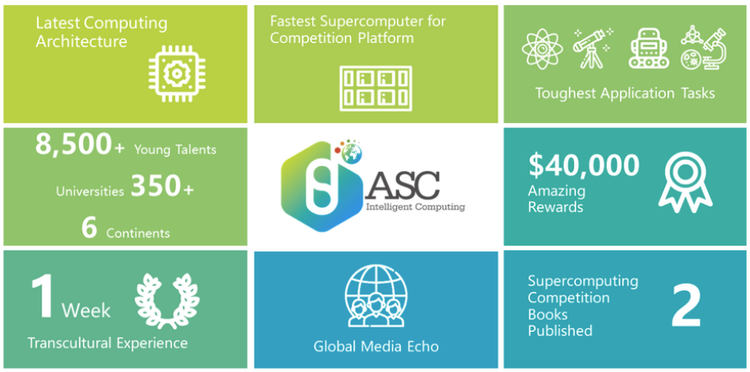MONASH DEEPNEURON
✦
MONASH DEEPNEURON ✦
Optimised Computing Projects.
Previously High Performance Computing (HPC)
Neural Cellular Automata
Project Manager: Keren Collins
Cellular automata is a simulation technique that involves an n-dimensional (usually 2D) grid of cells, each with a state. Each cell’s state is updated iteratively based on a “ruleset”. The project will explore the different behaviours of cellular automata that emerge from different rulesets and eventually replace these rules with CNNs.
Read the project blog here.
Cluster Development
Project Lead: Anthony Oon
Team members will design and implement a custom HPC cluster workload management and scheduling software on a mini-cluster made of 4 Raspberry Pi 4 SBCs. This will first involve setting up remote access (similar to MDN workstation) and performing other mini-cluster improvements (automated infra management using Ansible, etc...).
Moving forward the team is exploring options in integrating different kinds of hardware into the existing cluster, as well as investigating different operating systems.
Touch Design
Exploring the creative potential of real-time graphics manipulation. TouchDesigner is an expansive visual development environment that allows for generative and interactive art. Our aim is to learn the fundamentals of TouchDesigner, understand how its node-based workflows can be used to create dynamic visuals, and have fun experimenting with its possibilities.
DDoS Dissipation
An investigation into Distributed Denial of Service attacks and how HPC techniques can be used to defend a web service under such attacks. A research paper published in the HPC Asia 2018 conference introduces FlexProtect - A DDoS protection architecture for a distributed computing system. Our aim is to explore and investigate how FlexProtect performs against DDoS attacks using HPC simulations.
MDN x MYMI
To build a trained model able to interpret the risk of over-triage or under-triage to a specific individual on the basis of demographics data to combat the potential effects of unintentional bias.
Parallel Clip Training
A HPC x AI Collaboration
Create a CLIP (model which connects related images and text) from scratch, testing HPC techniques to make training it faster. Over the Summer, this involves parallelising the training of a CNN over multiple CPUs/GPUs and investigating whether this speeds up DL model training & execution.
Mindflux EEG
The Mindflux project uses electroencephalogram (EEG) headsets from Emotiv to stream human inputs as brainwaves recorded by the electrodes in the headset. These waves are then transformed by a Fourier transformation to derive the frequency domain, which can be filtered out to identify different actions made by the person. We aim to recreate this software and produce real-time inputs and outputs that can help us perform actions through binary thoughts.
Motorola Dream Machine
Aimed with finding a new way to provide actuation to people with disability, MDN has generously been given a grant by Motorola in order to utilise EEG mind control headsets, which converts electrical signals in the brain to data. With this data sufficiently refined via fourier transformations, it can be sent into a classification AI model, which allows us to generate meaningful actuation. Currently, that is being directed to a robot arm as a proof of concept.
MDN x Cao Lab for Medical AGI/ASI
To develop an AI-powered surgical agent using Reinforcement Learning capable of performing laparoscopic procedures such as appendectomy and gallbladder removal with precision and autonomy.
DeepTech Digest x Research Generator
Coming Soon
Legacy Projects









